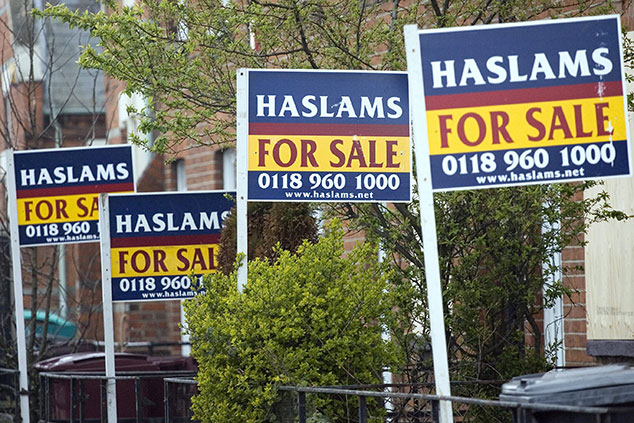
Read the celebrity interviews on the back of the weekend money sections and you’d be pretty certain that the route to riches is still property: they are all still sure that buying a couple of houses is better than having a proper pension.
But look at the numbers and it seems that fewer and fewer ordinary people are agreeing with them. A survey just out from the National Landlords Association suggests that around 20% of landlords plan to sell up this year, something the trade body reckons could “flood the market” with properties.
Properties that there isn’t going to be as much demand for as there might have been a few years ago: figures from UK Finance show that loans to landlords were down 20% year on year in March.
In the last three months of last year, less than 13% of new mortgages went to buy-to-let investors (which suggests that the percentage of the UK property market taken up by landlords will soon fall from its current 20%).
More on this comes from a Rathbones survey of over 1,000 UK investors and 500 “high net worth” individuals (HNWs). Turns out that over half them no longer view property as a good investment and that of the 25% HNWs who are already in buy-to-let, a mere 7% plan to increase the size of their portfolios – something particularly interesting given that, according to Rathbones, 25% of them “had accumulated their wealth through property.”
It isn’t hard to see why – we’ve written about this here many times before. Until April last year landlords could offset all their mortgage interest costs against their income before calculating their tax bill. When they come to do their taxes for the tax year 2017-18 they will only be able to do this with 75% of the interest – the rest will attract a 20% tax credit. This year the 75% falls to 50% and will keep falling until it hits zero in 2020-2021. From then on the whole lot gets nothing but a tax credit.
This changes the sums completely for 40% and 45% taxpayers and might have the effect of pushing 20% tax-paying landlords into a higher band. That’s going to make a lot of people need to sell. However, it doesn’t make more people want to buy – any more than the rise in stamp duty on second properties does.
The same goes for the rising level of work required from landlords – both to meet all the regulatory requirements of letting property and those of managing tenants. The Sunday Telegraph ran a story this week on the tribulations faced by the nation’s landlords: one third have experienced rental arrears (up 4.2% on last year); 25% have faced large bills for damage when a tenant has left; and 16% have had to deal with tenants who refuse to leave at the end of a tenancy. “If I had another income I’d stop this tomorrow,” one fed up landlord told the paper. I think we can be pretty sure that he won’t be buying any more buy-to-lets in the near future.
So who will buy? Loans to first-time buyers are holding steady at about 20% of total loans. With a bit of luck, the great buy-to-let sell up will mean prices keep falling, new owner occupiers to be will keep buying and, in a rare example of government action having something close to the intended effect, Britain’s seemingly endless housing crisis will begin to look less awful.